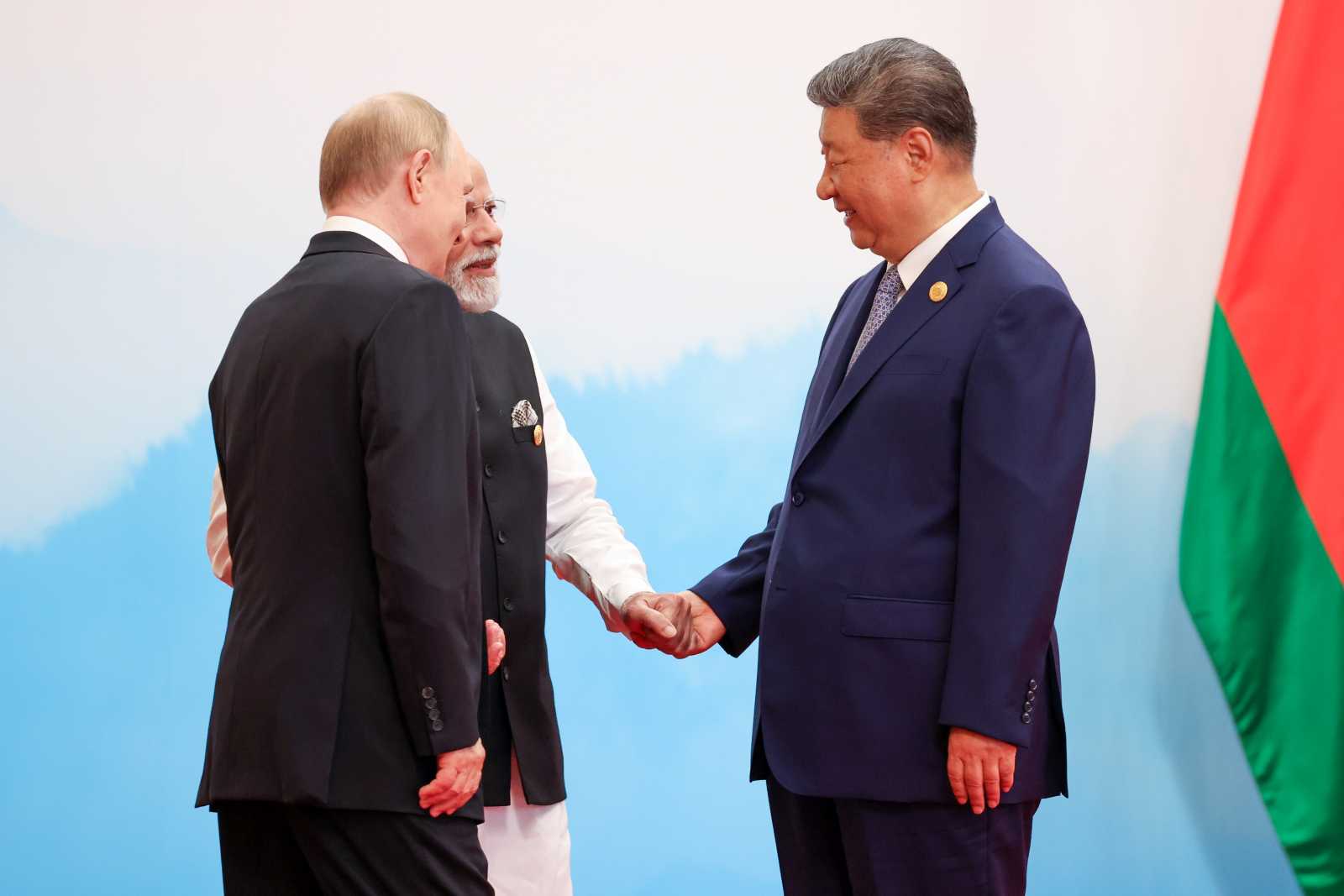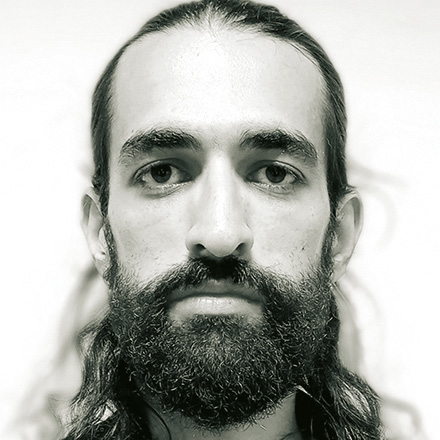Identity politics
Don’t send Netanyahu a message of unconditional support

On 7 October last year, Hamas launched its horrific terror attacks on Israeli civilians. Given that the Islamist militia is certainly antisemitic, it may seem plausible to use the anniversary to tackle the topic. Unfortunately, the resolution will most likely send the wrong messages to Germans, to Muslims and to Israelis. Moreover, it will probably stifle necessary debate in Germany. Let me explain point by point.
German antisemitism
Given our terrible history of Nazi genocide, the vast majority of Germans agrees that antisemitism is unacceptable. Nonetheless, it lingers on. Attacks on Jewish persons and Jewish institutions occur regularly. In recent years, the perpetrators tended to be Bio-Germans, as we call people with German ancestors. Polite society loves to ignore those antisemites, but they are a serious problem.
Antisemitic thinking, moreover, is more common than many people believe. It seems we have already forgotten a scandal that made headlines in the summer of 2023. It turned out that Hubert Aiwanger, the Bavarian state minister for economic affairs, had, in his high-school years, been found with leaflets that not only denied the Holocaust, but made fun of Nazi victims. A long media debate followed about what his motives may have been, but he never unambiguously disowned those leaflets. He is still in office.
Markus Söder, Bavaria’s state premier, a Christian-Social Democrat, found it inconvenient to fire him shortly before regional elections. Söder made apologies to Jewish organisations, but Aiwanger’s party, the Free Voters, went on to gain even more votes in the elections. Still a member of the state cabinet, he now proudly endorses the fight against what he calls “Islamist antisemitism”.
The Free Voters are a fringe group, but their blurry ideology clearly overlaps with the hard-right Alternative for Germany. Both organisations are Islamophobic and, to put it mildly, are rather ambivalent about antisemitism. Should the Bundestag pass an antisemitism resolution close to 7 October, the date itself will suggest that antisemitism today is basically a Muslim issue which is only stirring its ugly head in Germany because of migration. In view of Germany’s history, letting people like Aiwanger off the hook, is appalling.
Reaching out to Arabs and Muslims
Hamas is a militant outfit that has caused horrific suffering, not only among Jews. It is not primarily driven by antisemitism but by anti-Zionism and Islamist Fundamentalism. Its declared goal is to free the holy land from Jewish rule. Its antisemitism results from its anti-Zionism.
In this regard, it is not like the Nazis at all. The Nazis thrived on the terrible lie that Jews were aliens who were poisoning the nation. In truth, German Jews had fought as German soldiers in the First World War, identified with the nation and were not doing it any harm.
Hamas, by contast, is exploiting real Palestinian grievances. When Palestinians see Israel as their problem, they have a point. Israel was founded on land which was inhabited by Arabs, many of whom, though not all, were displaced. Palestinians still have no state of their own, even though the UN foresaw two states, one for Jews and one for Arabs in its decision of 1948 which was the basis for the creation of Israel.
Palestinians today either live under Israeli occupation in the West Bank, East Jerusalem and Gaza or as refugees in foreign countries. Only a small share are Israeli citizens and have voting rights, but nonetheless suffer various forms of discrimination. Given that Israel proclaims to be the state of Jews, it is only logical that Palestinians harbour feelings of resentment against that state and also against Jews.
Hamas is exploiting those feelings. So if we want to reach out to Palestinians, Arabs or Muslims in general, the focus on antisemitism is not helpful. It makes more sense to focus on other aspects of Hamas. First of all, it is excessively violent, killing not only Jews, but dissenting Palestinians as well. Its leader Yahya Sinwar earned his nickname “Butcher of Khan Yunis” by purging perceived collaborators with Israel from the ranks of Hamas.
Moreover, its ideology is totalitarian, so it has no qualms about sacrificing masses of civilians for its Islamist agenda. It is a war crime to hide fighters behind children, women and other defenceless people. And it is cynical to argue that their deaths don’t really count because martyrs go straight to heaven.
A real liberation movement cares about the welfare of its people. Hamas very obviously does not, but it excells at blaming all suffering exclusively on Israel. It can do so because Israeli action, in several ways, is indeed incompatible with international law.
The International Court of Law has stated unambiguously that Israel’s occupation policy is illegal. It has also ordered Israel to prevent genocide in Gaza, but the Israeli government does not accept those obligations. The Netanyahu government’s claims to be doing what it can to provide humanitarian aid ring hollow, given that international humanitarian organisations keep pointing out that it is preventing desperately needed relief.
What Netanyahu will hear
Unfortunately, the Bundestag will most likely not express legitimate and necessary criticism of Israel in its planned resolution. What it intends to tell Jews internationally is probably: “No matter what happens to you, we are on your side.” That is not what Prime Minister Benjamin Netanyahu and his right-wing government will hear. The message they will get is: “No matter what you do, we are on your side.”
The sad truth is that Israeli policies have been fanning anger and hatred which blurs into antisemitism. The more Israel is equated with Jewry, the more antisemitism and anti-Zionism become hard to distinguish. Israel’s radical religious Zionists, who insist on annexing large parts of the West Bank and want to build settlements in Gaza, must be told that they are going too far. Their aspirations are wrong and their action unacceptable. We cannot afford to ignore them. We must take into account that they shape Israeli policy and are prominently represented in the Cabinet.
Netanyahu’s big promise was always that military dominance would deliver security. The Hamas massacres last year proved him wrong. Therefore, German policymakers would do well to heed the voices of Israeli scholars like Moshe Zimmermann or David Levy. Zimmermann, a historian of the holocaust, recently wrote a book in German in which he urges German policymakers to focus on peacebuilding rather than promising unconditional support to a reckless government. In the same sense, David Levy, a former diplomat, has declared that “what Israel needs from its friends and supporters is to be pulled back from the precipice.”
Unfortunately, Israel did not try to prove, in fruitful cooperation with Fatah in the West Bank, that peace is possible and beneficial for both sides. Instead, its settlement policy kept provoking anger and made the Fatah-controlled Palestinian Authority look like its subcontractor. In this scenario, a focus on antisemitism is plainly not helpful.
Domestic debate in Germany
In theory, an antisemitism resolution could take into account all – or many – of the things argued above. If the Bundestag does so, I’ll be happy to have misjudged the plan. Unfortunately, I think our members of parliament are more likely to stick to the excessively philosemitic pattern of German officialdom in recent months.
German officials have consistently expressed outrage at any pro-Palestinian expression that can be read as anti-Jewish some way or another. At the same time, they have been downplaying legitimate criticism of Israel. Worse, they seem to be willfully ignoring crimes perpetrated on Israel’s behalf. I have dealt with this issue before. What I’d like to reiterate here is that scholars define execessive philosemitism as a form of antisemitism and that it is likely to amplify other kinds of antisemitism.
Most likely, the Bundestag resolution will include demands to ban antisemites from any kind of public support, including, for example, the use of public venues. Experience shows that courts will often rule against such bans in practice. At least that was the case with a previous resolution that ostracized the pro-Palestinian BDS (Boycott, Divest, Sanctions) movement a few years ago.
Those judgements, however, did not make the anti-BDS resolution meaningless. People do not want to bear the stigma of being labeled antisemites, so many will shy away from the Palestine topic. Moreover, not everyone who is denied public support will be able or willing to go to court. Quite likely, a new Bundestag resolution will further stifle public debate. That debate, however, is necessary to get a full picture of what is going on and what it should mean for public policy.
My personal experience in recent months is that most Germans do not contradict me when I spell out how I see things. I have found no supporters of Netanyahu, and only a few who insist that Palestinian discomfort with Israel is basically antisemitic and not really different from the Nazi's antisemitism. I wish they read recent articles by Israeli historians like Jonathan Dekel-Chen or Omer Bartev.
Dekel-Chen, the father of a Hamas hostage, spelled out in the New York Times why he is fed up with the Netanyahu government comparing Hamas to the Nazis. One reason is that it distracts attention from the failures of the Israeli government to protect its citizens. Moreover, it prevents a serious reckoning with what is going wrong. “Cynical officials are short-circuiting any attempt on Israel’s part to engage with the root causes of this anger: the large-scale civilian casualties in Gaza that have sapped our government’s ability to maintain any moral high ground in this conflict.”
Omer Bartov’s long and thought-provoking essay in the Guardian points in a similar direction. He compares the mindset of young Israeli soldiers in Gaza today with the one of German soldiers in Russia in World War II. In both cases, he says, the fear of the enemy’s revenge is so strong that it makes adherence to humanitarian principles unlikely. Bartov states unequivocally that it is no longer possible to deny Israel’s engagement in “systematic war crimes, crimes against humanity and genocidal actions”.
Neither of the two historians hate Israel. They are actually concerned patriots who want to prevent the worst. German policymakers should pay attention to them.
References
Dekel-Chen, J., 2024: An Israeli Hostage’s Parent: This Is Not the Holocaust. https://www.nytimes.com/2024/06/18/opinion/holocaust-israel-palestinians-hamas.html
Bartov, O.: As a former IDF soldier and historian of genocide, I was deeply disturbed by my recent visit to Israel. https://www.theguardian.com/world/article/2024/aug/13/israel-gaza-historian-omer-bartov
Hans Dembowski is editor-in-chief of D+C/E+Z.
euz.editor@dandc.eu


















